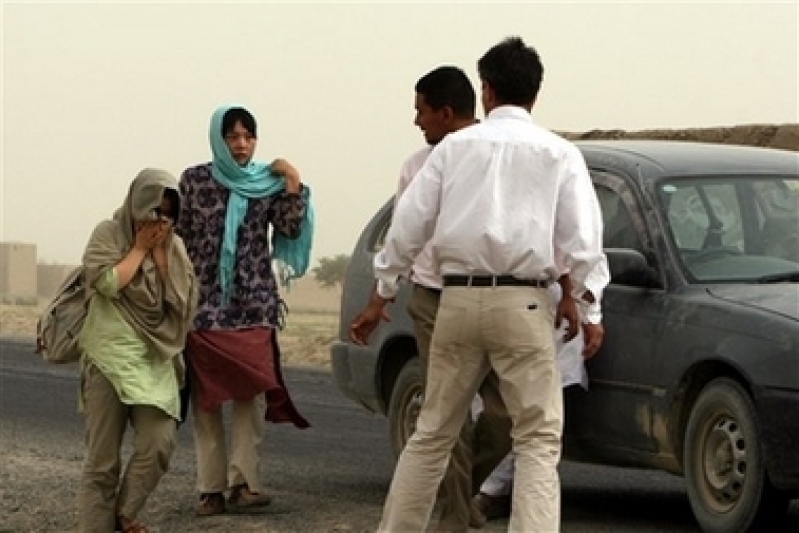
A Taliban militant said Wednesday that one of the hostages had foregone her chance of freedom to allow another captive who was more ill to be released.
The spokesman for Taliban commander Abdullah Jan, who only identified himself as Masoom, said he was unable to recall the name of the woman who sacrificed her freedom.
“Their names are very difficult to remember,” said Masoom to The Korea Times. “All names are alike with the difference of a few characters,” he said. “This is why we can’t remember them.”
Two female hostages were released Monday afternoon and were said to be in better health than earlier reported. The freed captives were identified as Kim Kyung-ja and Kim Ji-na, 37 and 32 years old, respectively.
Jan’s spokesman said that the Korea media should speak to the two released hostages and they could provide the name of the woman who chose to stay behind.
Yousuf Ahmadi, who has represented the Taliban in most of the media phone interviews, said he did not know the name of the female hostage because he never met any of them, but Jan or his spokesman Masoom did because they were holding the captives.
The release of the two women Monday was the Taliban’s “goodwill gesture” towards the Korean people and officials after four days of face-to-face negotiations which began on Aug. 10. Immediately following the breakthrough, however, no second round of in person talks were scheduled, with the Taliban explaining that negotiators on both sides were taking time to discuss the situation with their superiors.
After a day of over-the-phone talks, the Taliban announced Wednesday that direct talks will resume on Thursday for the remaining 19 South Koran hostages.
“The talks will resume tomorrow at 10 o’clock (3:30 a.m. EDT) in the same place in Ghazni province,” said Taliban spokesman Ahmadi, according to Agence France-Presse.
Talks have been held at the local headquarters of the Afghan Red Crescent Society, which is associated with the International Committee of the Red Cross (ICRC).






